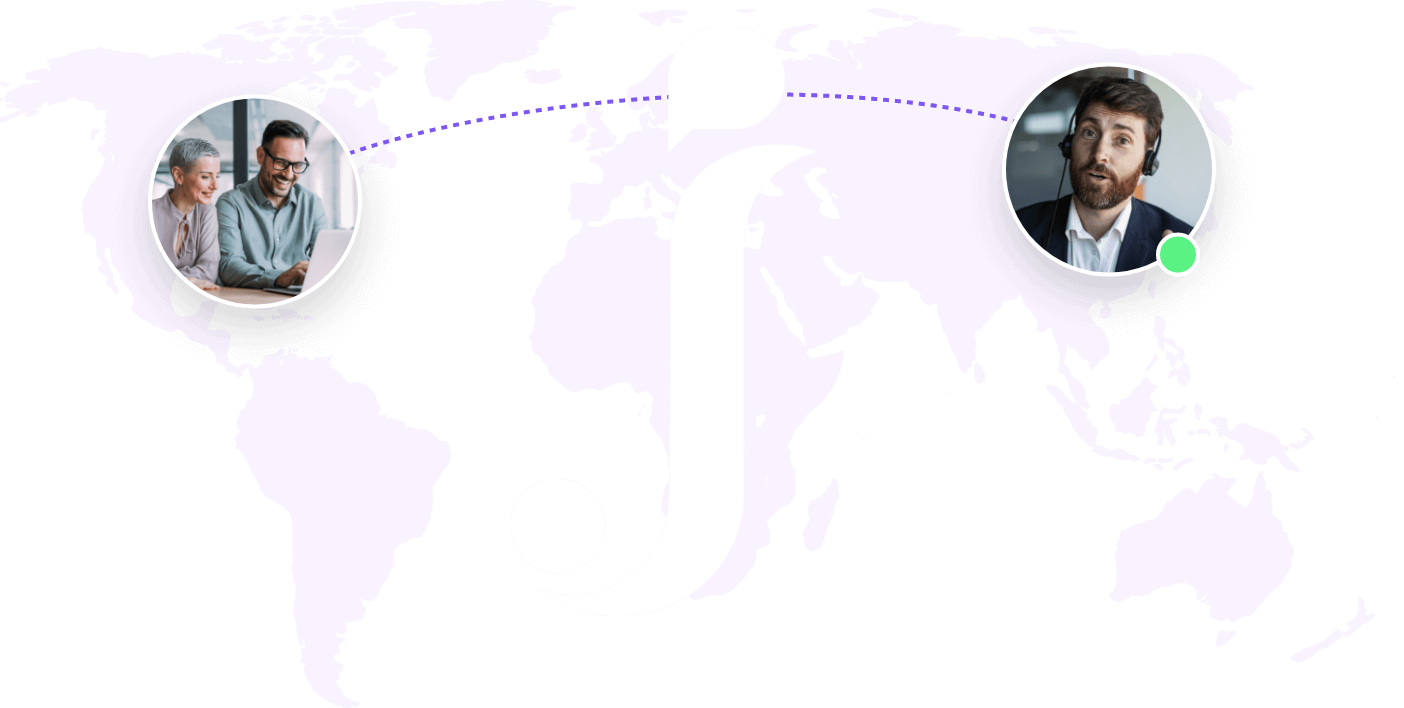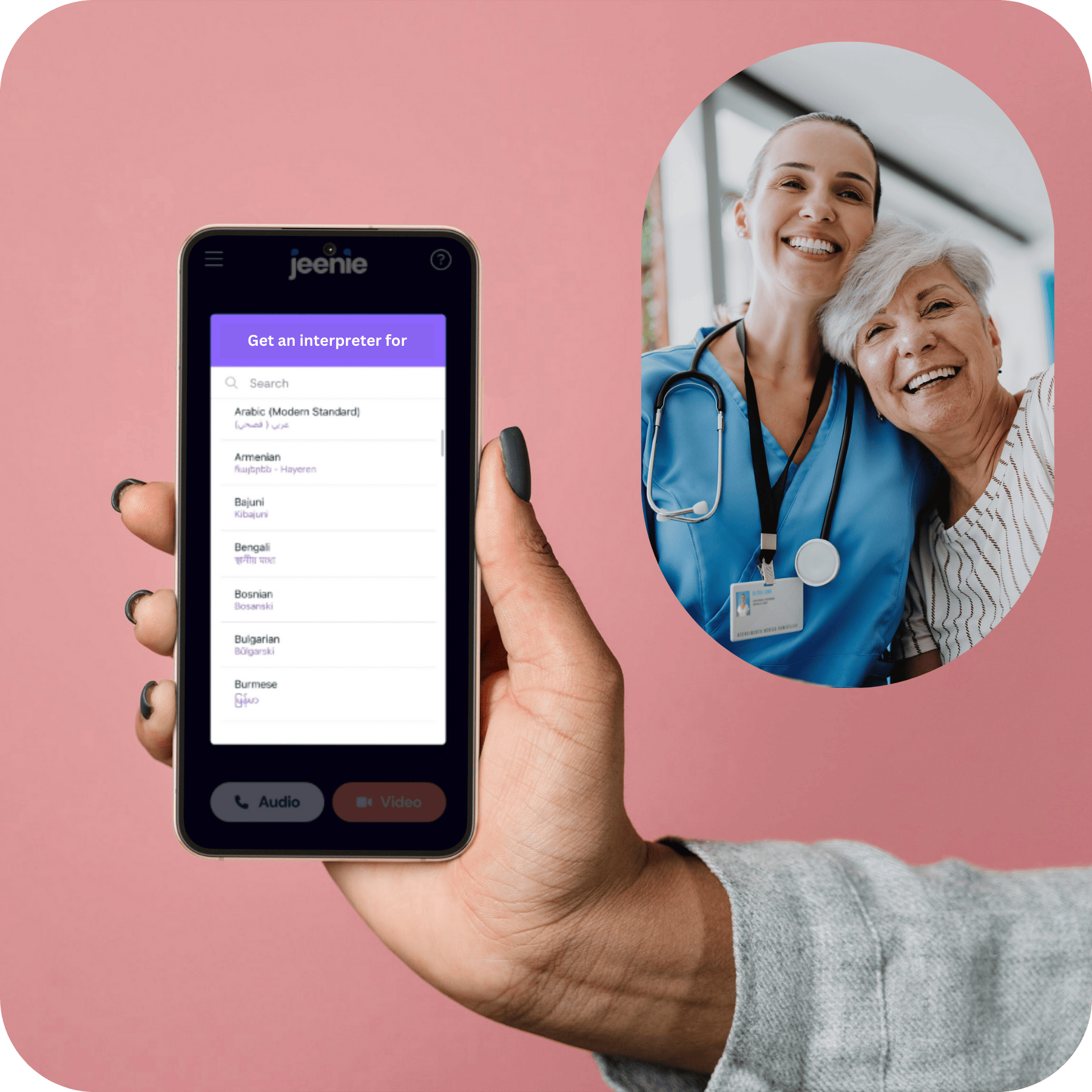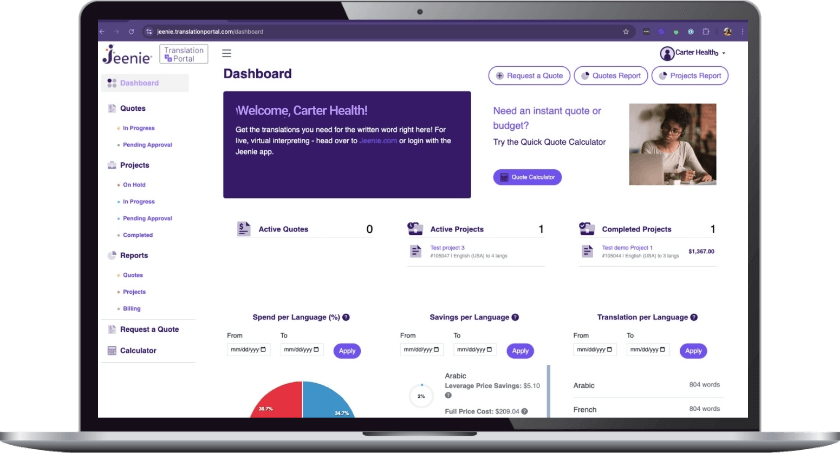

Thousand
When every second counts, Jeenie offers world-class interpreters in over 300 languages on its remote interpreting platform. Clients are matched instantly to vetted, live interpreters 24/7.
Any device. Anywhere. Any time.










Swahili, or Kiswahili, is a Bantu language with strong Arabic influences, spoken by over 16 million people as a first language and by over 70 million people across East Africa. Its roots trace back to the coastal regions of present-day Kenya, Tanzania, and Mozambique, where it developed as a lingua franca for trade between African, Arab, Persian, and Portuguese merchants. The language flourished as it blended indigenous Bantu elements with Arabic vocabulary, particularly in coastal cities like Mombasa.
Swahili’s role expanded during colonial times, when it became a symbol of national unity and resistance, particularly in Tanzania, where it was adopted as the national language. Today, Swahili is not only widely spoken in East Africa but is also an official language of the African Union and one of the United Nations’ working languages.


Swahili culture is a rich blend of African traditions and Arab influence, rooted in the coastal regions of East Africa. Its cuisine features a fusion of spices, with dishes like pilau and samosa reflecting centuries of trade with the Middle East and India.
Music is another central pillar, with genres like taarab and bongo flava, a fusion of Swahili rhythms with contemporary styles, capturing the region’s dynamic cultural evolution. Swahili-speaking communities celebrate a variety of festivals, including the Islamic holiday of Eid, as well as coastal ceremonies such as ngoma dances.
The culture places a strong emphasis on hospitality, community, and respect for elders, with the concept of "Ubuntu"—a belief in shared humanity—permeating daily life. Understanding these cultural values is essential for truly appreciating the warmth and diversity of Swahili-speaking communities.
Across the industry, Swahili interpreting is typically charged on a per minute rate. With Jeenie, our rates are some of the best in the industry. Your per minute rate will depend on which Jeenie plan you have. See our Pricing page for more details.
Note: Jeenie offers the same rate for Video and Audio-only. Why?
Because we know that video sessions get better outcomes. Video captures non-verbal cues (75% – 93% of most interactions) – making it more efficient and more effective in critical interactions.
We get this question a lot.
Swahili interpreters help with spoken interactions. They are present in-the-moment to help people with different languages to communicate (Swahili into English and English into Swahili). Interpreters also serve as communication and are experts at culture nuance. They help to ensure that both parties understand each other.
Swahili translators help with written documents. Translators convert written text into the needed language.
Jeenie attracts the best interpreters in the world. Truly. We constantly hear from clients that they have NEVER had such amazing interpreters on other services. That skill saves our clients time and minimizes their risk of costly miscommunications. Here's how we excel at quality:
We treat interpreters well.
Jeenie offers linguists great compensation (often the best in the industry), work-life flexibility, ongoing learning to improve their craft, and our heart-felt respect. For this and many other reasons, the best interpreters want to be on the Jeenie platform.
We have extremely high standards.
Unlike most of our competitors who outsource huge chunks of their interpreting needs, Jeenie has created a vetted network of global talent who are active within our platform. This gives us direct oversight on quality and skills assessment. Jeenie interpreters must pass our rigorous skills evaluations, have several years of experience, maintain 4.0 average client rating, and pass ongoing quality tests.



Speak with our experienced team to get expert advice on your language access plan and catch a quick demo of our platform.